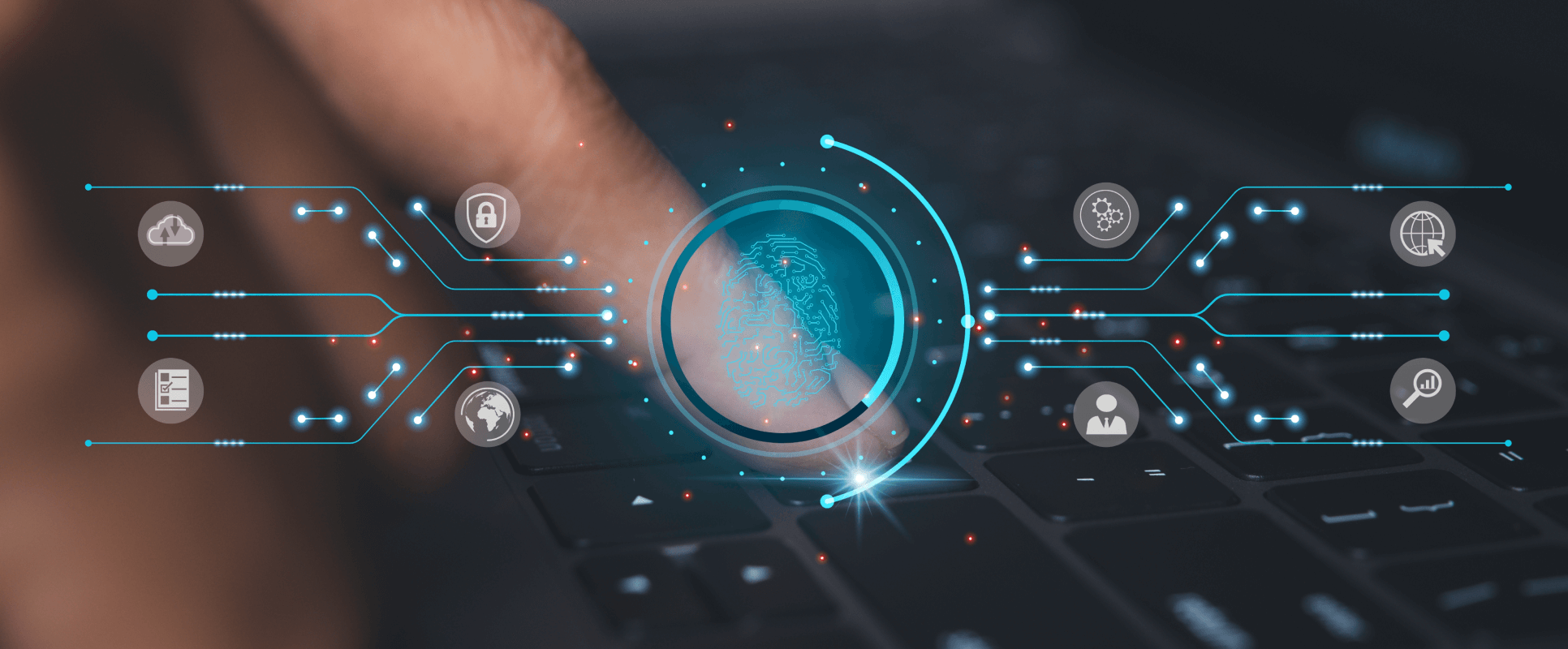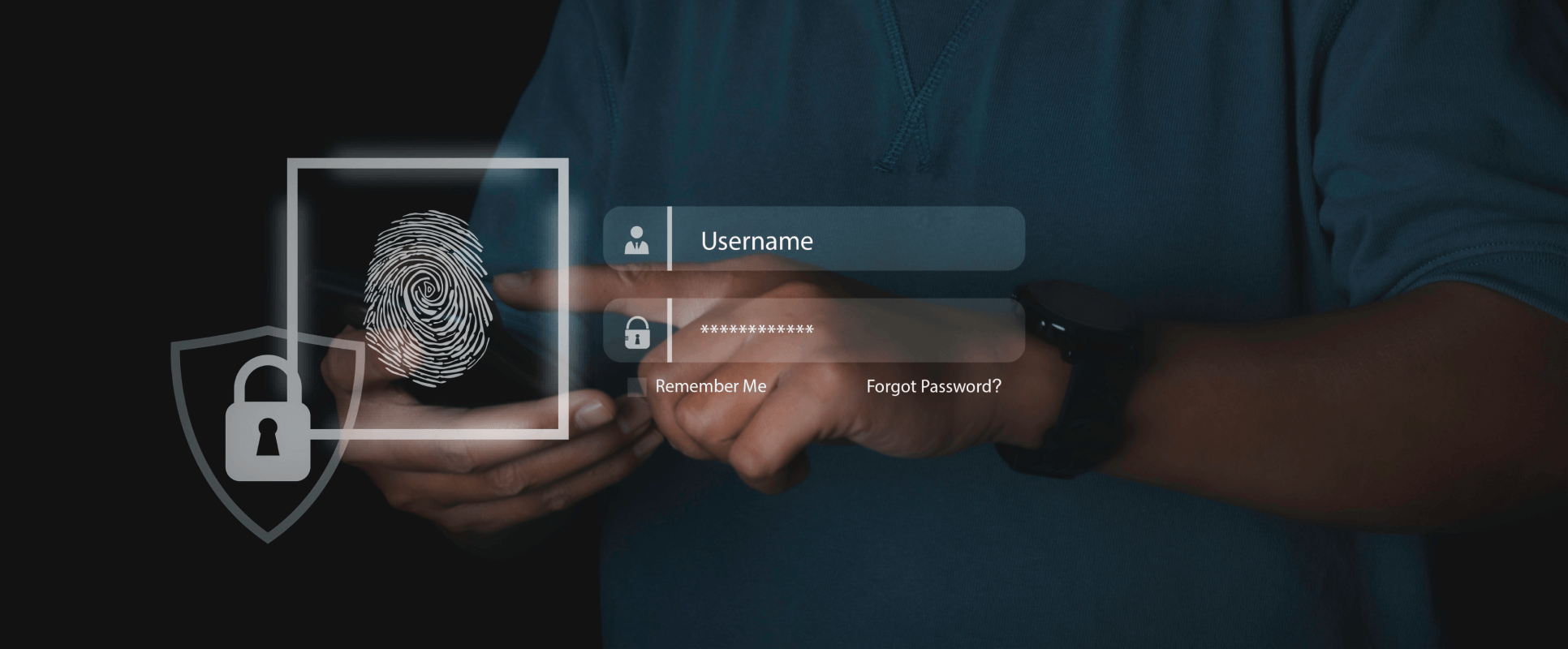Today's life is more dependent on technological devices than ever before. Yet, despite technology’s good, cybersecurity threats present a costly danger. The UK spends billions of pounds in cybercrime-related costs. Hence, individuals and organisations must understand how to stay safe from cyber threats.
Explanation of What Cybersecurity Is
Cybersecurity is the practice of protecting devices, networks, and data from attacks. Cyber security is also known as electronic information security or information technology security. The term can fall into categories like:
- Network security
- Information security
- Application security
- Disaster recovery and business continuity
- Operational security
- End-user education
Each category above focuses on a specific niche. For instance, network security secures computer networks from intruders. On the flip side, information security protects the integrity of data at rest and in transit.
Importance of Cybersecurity in Today's Digital World
Companies and organisations collect, process, and store large volumes of data. A considerable part of the data can contain sensitive information.
Unauthorised access to sensitive information could have negative implications. Also, as the complexity of attacks grows, companies must be vigilant to protect against cyber threats.
Brief Overview of Cybersecurity Services
Cybersecurity services provide information, strategies, and designs to improve digital security. They strengthen your online defences and shield you against cyber attacks. Examples of cyber security services include:
- Cyber security assessments. Identifies gaps and opportunities to improve your information security program.
- Data governance. Helps you handle increasingly large volumes of data while maintaining your cybersecurity posture.
- Governance, risk, and compliance. Aligns your activities to performance drivers using IT security programs.
Cyber security services also provide guidelines for developing comprehensive solutions against cyber attacks.

Understanding Cybersecurity
Here is an overview of cybersecurity's basics, threats, and importance.
Explanation of What Cybersecurity Entails
Cybersecurity entails measures that prevent cyber threats. If unfortunately, a cyber attack happens, cybersecurity practices mitigate the risk. Cybersecurity provides ways to:
- Respond to inevitable incidences
- Restore normal operations
- Protect the company's assets and reputation
Cyber security practices also patch up systems' vulnerabilities to prevent future attacks.
Common Threats and Risks Faced by Businesses
Below are some potential attacks businesses can face.
Hacking
Hacking identifies and exploits weaknesses in computer systems or networks. For example, using a password-cracking algorithm to access a computer system is hacking.
Hackers use techniques like social engineering or logging keystrokes to achieve their aim. The goal is usually malicious, e.g., to steal money, get cash advances, or destroy credit ratings.
Phishing
A 2021/2022 UK government survey revealed phishing attempts as the top cyber threats. In phishing, cybercriminals fake communication to trick the recipient into carrying out instructions.
For instance, the cybercriminal can pose as a legitimate company asking for information. Phishing attacks often dupe people into handing in personal information like logins.
Malware
Malware refers to malicious software. Cybercriminals create malware to disrupt or damage a legitimate user's computer. The software usually spreads via legitimate-looking downloads or unsolicited email attachments. Common types of malware include:
- Virus. A self-replicating malware that attaches to and infects clean files with malicious code.
- Spyware. The program secretly records user data to give cybercriminals personal information.
- Ransomware. The malware locks a user's data or files and threatens to erase them if a ransom is not paid.
- Trojan. The malware disguises itself as legitimate software and damages or collects computer data.
- Adware. An advertising software that spreads malware.
- Botnet. A network of infected computers that cybercriminals use to perform online tasks.
Software development services continually strive to develop apps that malware can't easily attack.
Why Cybersecurity Is Becoming Increasingly Important
The current society is more technologically reliant than ever, and there’s no sign of this trend slowing. Sensitive information like bank account details is now stored in cloud storage services. Besides, whether an individual, small, or large business, you rely on computers daily.
Moreover, there is a significant rise in smartphone usage, IoT, and poor cloud security. As a result, there is an increase in vulnerabilities that didn't exist decades before. Information theft is also rising, hence the need to be more vigilant in cybersecurity.

Benefits of Cybersecurity Services
Cybersecurity services boast the following top advantages:
Protection Against Data Breaches
Cyber attacks can result in losing sensitive data, e.g., trade secrets and financial records. In addition, cybercriminals can sell or use the data in activities that result in lawsuits for your company.
The ideal way to protect against the cost that comes with data breaches is to prevent them. Therefore, cybersecurity deploys effective measures to ensure top-notch network security.
Increased Privacy and Security
Cyber security technologies protect networks, data, and apps from unauthorised access. You can watch your networks and systems for suspicious activities with security measures.
Cyber security also protects against attacks that can steal or compromise data. So, you are sure that only authorised individuals will access sensitive information.
Improved Brand Reputation and Customer Trust
While striving to win over customers' trust, you can lag due to data breaches. Weak security systems usually weaken your customers’ confidence in your business. But, with a robust security system, customers trust you with their information. As a result, brand reputation and customer loyalty increase.

Types of Cybersecurity Services
Typical cybersecurity services fall under the following categories.
Penetration Testing
Also known as a pen test, penetration testing is a simulated attack to check for vulnerabilities. The test tries to breach your APIs and servers to find exploitable weaknesses, if any.
You then use insights from the trial to fine-tune your policies and patch up vulnerabilities. Pen test methods include internal, external, blind, and targeted testing.
Vulnerability Assessment
A vulnerability assessment reviews security weaknesses in an information system. First, the test assesses whether the system is vulnerable to known security issues.
The evaluation then assigns severity levels to the vulnerabilities and recommends mitigation. Threats the assessment prevents include SQL and code injections and insecure defaults.
Incident Response
The technologies and processes for detecting and mitigating cyber threats are called incident response. The service prevents attacks before they happen. As a result, you experience reduced business disruption resulting from cyberattacks. You also reduce regulatory fines, lost revenue, and other costs of cyberattacks.
Threat Intelligence
Also called cyber threat intelligence (CTI), threat intelligence identifies and analyses cyber threats. CTI gathers, processes, and analyses data to better understand a potential danger. A well-structured CTI can:
- Prevent data loss. You spot threats and ensure breaches don't release sensitive data.
- Provide guidelines about safety measures. CTI identifies patterns cybercriminals use to help safeguard against future threats.
You can also share new tactics with other experts to create a collective knowledge base.
Cybersecurity for Different Industries
Cybersecurity is a must-have for all companies, big and small. Nonetheless, some industries have more valuable data, falling prey to many cybercriminals. Here are three examples of such industries.
Healthcare
The pandemic channelled great amounts of money into the healthcare industry. Patients' sensitive data is also valuable since it allows for identity theft and impersonation. Hackers used the situation to create fake pandemic apps and gather personal information. The Information Commissioner's Office handled 100% more ransomware attacks in 2021.
Cyber security in healthcare protects patients' and customers' data. Also, end-user education reduces mistakes like missed delivery and inconsistencies. Finally, advanced network security solutions prevent unauthorised access to patient information.
Finance
Financial institutions like banks, asset managers, and insurance companies store lots of private data. Cybercriminals target sensitive data from such organisations, e.g., credit card details. Data security measures are handy to protect consumer data and avoid penalties for non-compliance.
Cyber security in the finance sector prevents financial losses. Take a scenario where a data breach in a bank leads to a loss in customer funds. The money may take some time to recover. Besides impacting the bank's reputation, the customer also undergoes stress. Cyber security measures prevent or develop quick solutions for such occurrences.
Retail
Retailers collect massive amounts of customer data like emails and credit card information. If left vulnerable to attacks, retailers can incur substantial financial risks. Retailers are also an easy target because they don't have a high level of protection like large businesses.
Cybersecurity in the retail is an effective means to gain a competitive advantage among retailers. That's because security plays a vital role in consumers' minds when they choose a retailer. Data protection and network security, for instance, drive satisfaction and consumer loyalty. As a result, retailers experience a positive impact on sales and revenue.

Choosing the Right Cybersecurity Services
The ideal cybersecurity services meet your organisation's needs at a fair price.
Factors To Consider
The right cybersecurity services depend on the following needs and demands:
Budget
Cyber security services range from simple software to complete managed services. The cost of the services increases as the complexity increases.
Opt for services that offer the needed protection within your budget. Then, adjust your budget to fit your needs instead of using less-than-ideal services if needed. Also, settle on services that offer the best value for your funds.
Company Size
Large companies need more advanced solutions and encryption algorithms. The security needs for larger companies are more because of the size and nature of data. Conversely, small and medium-sized companies can use simple systems. When looking for cyber security services, opt for complex systems if your company is big.
Technology
Advancements in technology lead to improvements in the capabilities of security providers. For instance, new AI and machine learning developments enable faster threat detection. Also, as new threats emerge, software development services must respond with updated solutions. So opt for modern solutions to ensure you stay aware of new threats.
Questions To Ask
The following queries help you better understand your potential cyber security provider.
What Is Your Professional Experience?
The ideal company has experience in working with data similar to yours. First, ask the company where they have worked and if they are familiar with your sector. Also, evaluate the provider's track record of successful projects. Then, opt for a company with well-trained, certified employees and enough experience.
What Is Your Portfolio?
Ask what the provider's portfolio of services includes. Do they have the credentials and certifications to back up their expertise? Do they offer comprehensive network security services across several platforms? Do they have the resources and expertise to meet your needs? Consider options if the answer to any of the questions above is no.
What Is Your Cybersecurity Process?
Insights into the processes of a security provider can help you gauge their reliability. An ideal company should have well-structured and regularly updated security controls and policies. Then, work with a provider whose processes align with your goals and needs.
What Are Your Communication Principles?
An ideal company should have a clear way of explaining its services to clients. The information should be detailed and include their services and benefits.
The employees should be able to answer client questions quickly and accurately. With such a company, you are guaranteed timely updates of information that concerns your organisation.
Importance of Conducting Research and Due Diligence
Background checks uncover valuable data to guide you in choosing a suitable provider. Below are reasons to perform a detailed review of your potential security service provider.
Provides Understanding of the Expected Services
Research provides insights into the company's qualifications, capabilities, and experience. Due diligence helps you assess a company's approach to security. For instance, you can determine if the providers follow best practices or industry standards. Besides, the information helps you determine if the company can provide the security level you need.
Supports Helpful Comparisons
Research provides information to help you decide whether to engage a company. You assess the certifications and ability of the company to respond to security issues. You also understand the company's weaknesses, strengths, and risks. The information also forms a good comparison basis that helps you choose a company wisely.
Identifies Conflict of Interest
Due diligence involves analysing a company's personnel, products, and services. Review the company's policies, history, and legal structure to identify any conflict of interest. Look for an alternative if you find policies that conflict with yours.
Provides Understanding of the Company's Professional Liability
Due diligence helps you evaluate a company's security posture and risk management practices. The research provides insights into the company's insurance and exclusions, if any. You also understand the coverage limits to ensure enough coverage for possible risks. The aim is to get adequate protection from liabilities associated with professional negligence.
Cost of Cybersecurity Services
The price you pay for cybersecurity services depends on the following factors.
- Data type. You need more layers to protect sensitive data and comply with regulations. For instance, if you are a medical provider, you must secure your data under HIPAA. The additional measures call for an increased cost of cybersecurity services.
- Company size. More employees present more opportunities for a cyber attack. So, you incur more costs than smaller businesses if you are a large organisation.
- Products and services. Cybersecurity product vendors have different prices, service quality, and scope of protection. The more protection you want, the higher your pay for cyber security services.
To find your actual costs, you'll have to determine your exact needs. Then, find out what your provider charges for the services needed.
Related Insights















